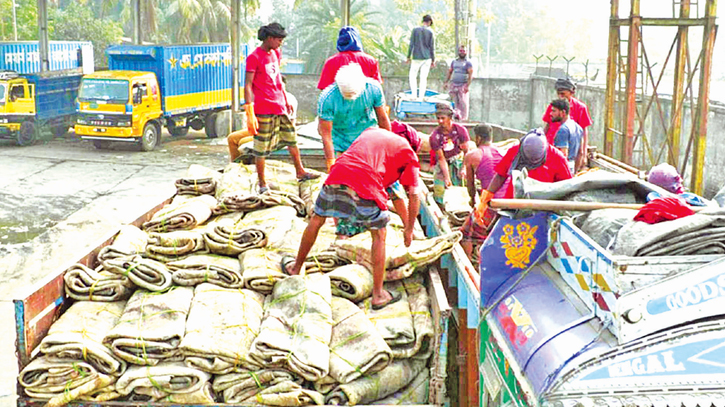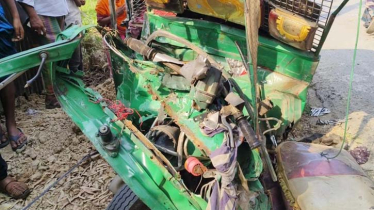
Photo: Messenger
Authorities at Benapole port have seized 41,900 kilograms of illicit buffalo skin due to a lack of a livestock quarantine certificate, exposing a violation of import regulations. The buffalo skin, imported by Bangladeshi firm Chandpur Tannery from India on December 19, has been stuck at the port for a month due to import policy inconsistencies.
Allegedly, corrupt practices involving traders evading required permissions from the Department of Livestock for importing leather from India have persisted. Unscrupulous individuals are said to have manipulated officials to facilitate these illegal transactions.
Customs authorities took action following concerns raised by livestock officials about irregularities during the release process. The block on the shipment has revealed widespread irregularities in the leather importation process.
Despite having a sufficient annual supply of domestic raw leather, industrial factories producing leather goods for export feel the need to import Leather Working Group (LWG) certified finished leather, costing around 100 million dollars annually. While Bangladesh exports leather goods worth 170 million dollars, some importers have been bypassing regulations, utilizing the Benapole port for unauthorized imports with the assistance of certain traders and government officials.
AR International, a notable leather exporter in India, is implicated in this illegal trade. On December 20, customs intervened in the release of the leather shipment based on livestock officials' complaints, resulting in the seizure of the consignment.
The C&F representative of the accused importer, Moklechur Rahman, claimed that the hides were released at Benapole port without proper clearance. Customs authorities are withholding the release, citing the necessity for livestock clearance.
General C&F businessman Sirajul Islam expressed concern over prolonged irregularities in the leather import sector, emphasizing the need to identify and hold accountable those involved. He stressed that honest export opportunities for the country should not be compromised by illegal practices.
Rahmat, a general leather seller, highlighted the paradox of regular leather imports from India despite a lack of sales within the country. Livestock Quarantine Station Officer Vinay Krishna Mondal confirmed the seizure, attributing it to irregularities and the absence of clearance from the Livestock Office.
In the fiscal year 2022-23, Bangladesh exported leather and leather products worth 1.7 billion dollars, with leather imports valued at one thousand crore rupees being necessary. The Bangladesh Tanners Association estimates that the country loses 500 million US dollars annually in income from leather exports due to the absence of LDBWG certification, with only 5 out of 142 tanneries obtaining certification from the International Leather Working Group.
Messenger/Rocky








